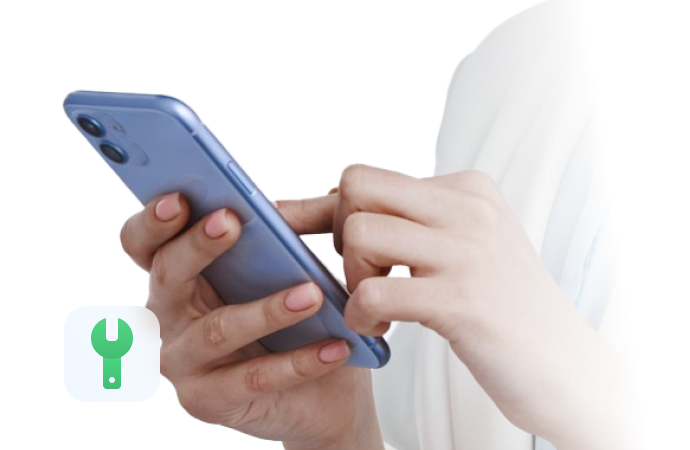
Fix SSL Error on iPhone/iPad – Using the Right Methods
Feb 11, 2026 • Filed to: Phone Repair Solutions • Proven solutions
My iPad keeps popping up with an alert that says “an SSL error has occurred and a secure connection to the server cannot be made”. I am unable to play music that isn’t already downloaded from the Apple ‘Music’ app, or download any apps. I have tried both turning the wifi on my iPad off and back on, as well as turning the power button off and back on again. None of this is working though.
If someone could please help me that would be amazing because as a student, I have an English presentation due tomorrow and I can’t download the Apple ‘Pages’ or Microsoft ‘Word’ apps that I need.
While using your iPhone or iPad, you might need an internet connection for processing multiple things on your device. In this era, the internet holds quite an importance for working through tasks. However, there is a potential chance of an error in such cases. One common and consistent issue involving the internet is the problem of establishing an SSL connection. This article is about fixing the SSL error on iPhone and providing a detailed guide with the help of multiple solutions.
- Part 1: About SSL Error iPhone/iPad
- Part 2: Common Ways to Fix the SSL Error on iPhone and iPad
- Method 1: Restart Your iOS Device
- Method 2: Toggle Airplane Mode
- Method 3: Reset Network Settings
- Method 4: Check the Date and Time
- Method 5: Update Your iPhone/iPad
- Method 6: Restart the Problematic App
- Method 7: Clear Browser Cookies and Cache
- Method 8: Reset All Settings on iPhone/iPad
- Method 9: Change DNS Server
- Part 3: The Most Efficient Way to Fix the SSL Error on iPhone and iPad [Without Data Loss]

- Part 4: FAQs about SSL on iPhone/iPad
Part 1: About SSL Error iPhone/iPad
To start our discussion, we shall first look at what the SSL Error iPhone/iPad is and why a user has to face it. This part will provide a definition of this error along with the potential reasons for this error.
SSL Error Has Occurred, and What is It?
There are different forms of SSL errors existing while working on the internet. This, however, comes while working with the browsers on your iPhone or iPad. While it can direct to server issues, there can be multiple dimensions to this error. Having an SSL error on your iPhone prevents you from browsing a website over HTTPS. As there is no SSL certificate involved in the process, your device might get at risk, or the website won't open.

To understand more about the error, it should be known that there are multiple forms of SSL error iPhone that are reported. While each type has a different cause, the problem relates to the particular error. For that, we have listed them down for you to help you know more about it:
- NET:ERR_CERT_AUTHORITY_INVALID
- NET::ERR_CERT_COMMON_NAME_INVALID
- NET::ERR_CERT_REVOKED
- SSL Handshake Failed
- ERR_SSL_OBSOLETE_VERSION
- ERR_SLL_PROTOCOL_ERROR
Reasons Behind SSL Error iPhone/iPad
There are many factors that are involved with the SSL error. While you have understood what the SSL error on your iPhone is, you must also be aware of the reasons that lead you to such a situation. Let's find out more about the reasons for SSL Error iPhone in detail:
- If your iPhone or iPad's date and time settings are not properly set, issues with browsing data are pretty obvious. The response server will not operate properly while parsing the SSL data packets containing the incorrect date and time information.
- The network settings of your iPhone are quite questionable in such conditions when you are facing an SSL error iPhone. With such issues, you will have to look into the network settings and find out what corrupts them.
- The outdated iOS of your iPhone or iPad is a direct cause of the problem, as the incompatibility of multiple processes might hinder a proper connection of the iPhone's network over the SSL protocol.
- There is a huge chance that the router's security settings are restricting the iPhone from accessing the internet resources, which is causing the SSL errors.
- Temporary glitches in the iPhone or iPad can also cause such networking issues in your iPhone and iPad. These glitches can be easily fixed on the device; however, it requires you to oversee these issues to understand the nature of the error.
Part 2: Common Ways to Fix the SSL Error on iPhone and iPad
With all the potential reasons mentioned above, different variants of errors can be reported against the provided reason. The fixes to the SSL Error on your iPhone or iPad require you to look into various settings. We have set up a detailed set of methods that can be used to understand how to fix SSL connection errors on your iPhone:
Method 1: Restart Your iOS Device
Temporary iPhone glitches can be a basic problem that might raise errors such as the SSL error. The solution to such concerns can be restarting your iOS device, as this would resolve all temporary glitches that have multiple repercussions. Let's see how you can restart your iOS device with ease:
Step 1: Lead into the "Settings" of your iPhone or iPad and find the 'General' settings in the list.

Step 2: Next, find the "Shut Down" option by scrolling down the list of functions provided. This will turn off your iPhone or iPad, which can be restarted easily.

Method 2: Toggle Airplane Mode
Another solution to resolve the temporary glitches in your iPhone or iPad is to toggle the Airplane mode and restart the network settings. This jump-start can prove quite helpful and quick for users, reviving all the settings and helping the iOS device to function properly. To understand how to use this functionality for getting rid of the SSL error iPhone, let's look into the steps:
Step 1: Open the "Settings" of your iOS device and find the Airplane Mode option in the list.
Step 2: On locating the option, turn on the toggle for Airplane Mode and turn it off again to restart the cellular network connections on the iOS device.

Method 3: Reset Network Settings
If the problem persists and there are no particular solutions that fit its context, you will have to look into the device's network settings and reset them, if required. For this part, let's look into how to reset your network settings with ease:
Step 1: Launch the "Settings" of your iPhone and proceed to the "General" section in the list of options provided.

Step 2: Following this, find the "Transfer or Reset iPhone/iPad" option to proceed to the next screen for initialization of the reset process.

Step 3: Tap on the "Reset" button on the bottom and select "Reset Network Settings" from the available options. This will remove all networking settings, including the Wi-Fi, cellular, and Bluetooth details. Follow the on-screen instructions to execute the process successfully.

Method 4: Check the Date and Time
As stated above, incorrect date and time settings can become a significant issue in the problem we are discussing. While you understand the SSL connection error on iPhone, you must look into the date and time settings to see if they are incorrect. The error that occurs while using the browser can lead directly to irregularities in date and time settings. To resolve this particular error, let's see how you can manage your date and time settings:
Step 1: You must lead to the "Settings" of your iPhone/iPad and find the "General" settings in the list of available options.

Step 2: Next, you will have to select the "Date & Time" option to manage the particular settings on your iOS device.

Step 3: On the next screen, turn on the toggle of "Set Automatically" to define the proper date and time settings according to your real-time location.

Method 5: Update Your iPhone/iPad
Updating your iOS device is another quick and effective way to resolve problems like SSL errors on your device. As we are discussing the SSL Error iPhone, we will find out how the iOS update helps the user in resolving the error:
Step 1: You must start with the method by opening "Settings" on your iOS device. Redirect into the "General" settings from the options by scrolling down.

Step 2: Look for the "Software Update" option to lead to the screen where the device will automatically look for updates.

Step 3: If there are any available updates, click on the "Download and Install" button to update your iPhone or iPad to the latest version. The better the internet connection, the faster the method is to execute.

Method 6: Restart the Problematic App
Sometimes, SSL errors do not involve problems with the iPhone or iPad. It can also involve the application that you are using at the moment. In such circumstances, you might have to restart the problematic application by turning it off. Close down all operations that are happening against the application and start it again. For instance, if Apple Music is not working properly, it would be better to restart the application before coming to any conclusion.

Method 7: Clear Browser Cookies and Cache
SSL Error iPhone involves problems with the browser cookies and cache, which needs to be cleared out. With filled-out cookies and cache, the browser won't be able to function properly. Thus, it is essential to clear them out to ensure that you can browser opens up the searched links properly. Let's see how you can clear the cookies and cache of the Safari browser on your iOS device:
Step 1: You must open the "Settings" of your iPhone and proceed to find the "Safari" option in the list of options by scrolling down properly.

Step 2: As you find and open the respective option, you will be led to another screen where you have to tap on the "Clear History and Website Data" option to clear out the cookies and cache.

Method 8: Reset All Settings on iPhone/iPad
Considering the solutions are not working for your iPhone or iPad, you might have to take strict actions to resolve the networking problem in your device. To get rid of the SSL error iPhone, you will then have to reset all the settings by working through the steps as follows:
Step 1: Open the "Settings" of your iPhone and redirect to the "General" settings of your iOS device to open a new screen.

Step 2: Find the "Transfer or Reset iPhone" option in the list to lead to the next screen.

Step 3: Tap the "Reset" button on the bottom of the screen and select "Reset All Settings" to execute the task. Follow the on-screen instructions to reset all the prevailing settings on your iOS device.

Method 9: Change DNS Server
The SSL connection error on iPhone can be complicated much more than you would have considered. It might directly lead to issues with the DNS server failing to translate the web data for you properly. Since this is causing the problem, you will have to change these settings by following the steps defined below:
Step 1: Uninstall any DNS-related application if installed on your iPhone. Open "Settings" and find the "WLAN" option in the list.

Step 2: As you access the Wi-Fi network you have connected and open its settings, scroll down and find the "Configure DNS" option in the list.

Step 3: Set the "DNS" option to "Automatic" and check if the issue is resolved. If not, you must revert the settings to "Manual" and add a server. Click on the "Add Server" button and add a public DNS server such as 1.1.1.1. This will indeed resolve the underlying problems with the DNS server associated with your iPhone or iPad.

Part 3: The Most Efficient Way to Fix the SSL Error on iPhone and iPad Without Data Loss
Are you still confused about how to fix SSL errors on iPhone? If the solutions are not working out for you, we will provide you with an efficient technique for fixing the SSL error on your iOS device. Dr.Fone - System Repair (iOS) offers a unique and effective methodology for fixing different iPhone system issues. While it supports various system errors, it ensures that it resolves all the problems without compromising the data of your iPhone.
Essential Features to Consider About System Repair (iOS)
There are some prominent features of considering Dr.Fone - System Repair (iOS) for your SSL Error iPhone. We have highlighted these key features to help you in your decision:

Dr.Fone - System Repair (iOS)
One-Click Fix SSL Errors iPhone Or iPad without Data Loss
- Fixes various iOS issues like iPhone stuck on Apple logo, white screen, stuck in recovery mode, etc.
- Works smoothly with all versions of iPhone, iPad, and iPod touch.
- Retains existing phone data during the fix.
- Easy-to-follow instructions provided.
Steps to Repair Your iPhone/iPad SSL Error with System Repair (iOS)
With that, we will now let you know how you can use Dr.Fone - System Repair (iOS) to resolve the current issues of SSL errors on your iPhone or iPad:
Step 1: Open the iOS System Repair Tool
You have to first download and install the latest version of Dr.Fone's mobile toolbox on your device. Proceed to select "System Repair" from the options and direct to the next window, where you will specify the device that is to be repaired. Following this, after selecting "iOS," click on "iOS Repair" to continue with the process.
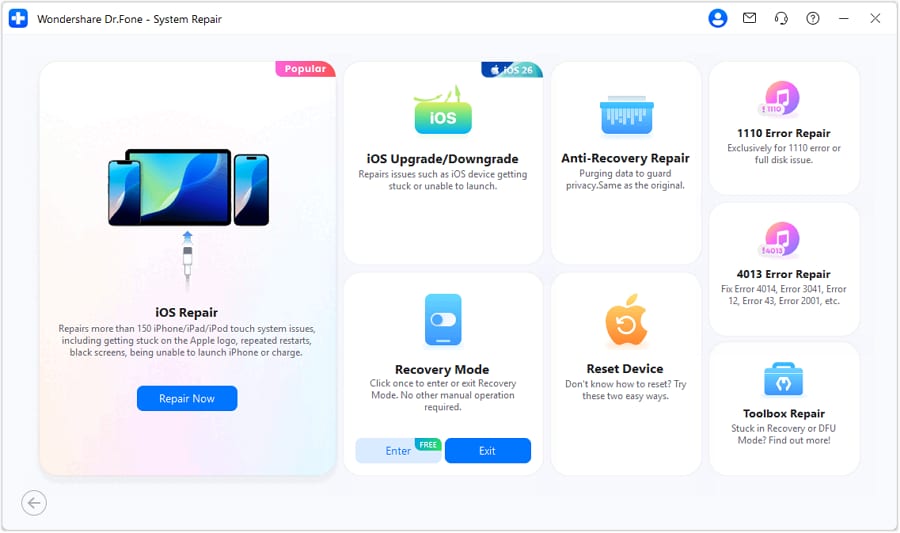
Step 2: Define the Mode of Repairing
You must define the mode of recovery to be the "Standard Mode," after which you will have to set up the Recovery Mode for your device.
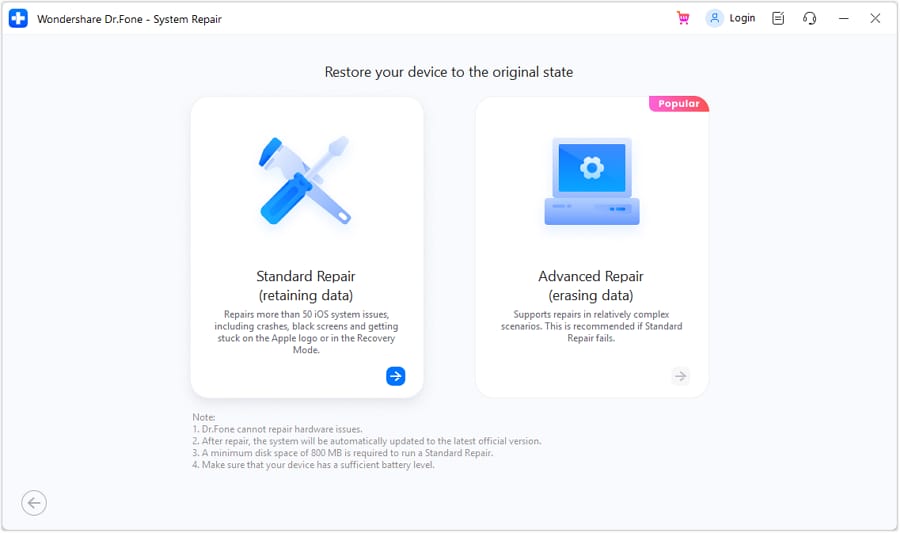
Step 3: Put the iPhone in Recovery Mode
Put your iPhone or iPad in Recovery Mode and click "Enter Recovery Mode" after performing the task. If you are not able to work on this, select the "Guide to Recovery Mode" option and follow the instructions to put the iOS device in Recovery Mode successfully.
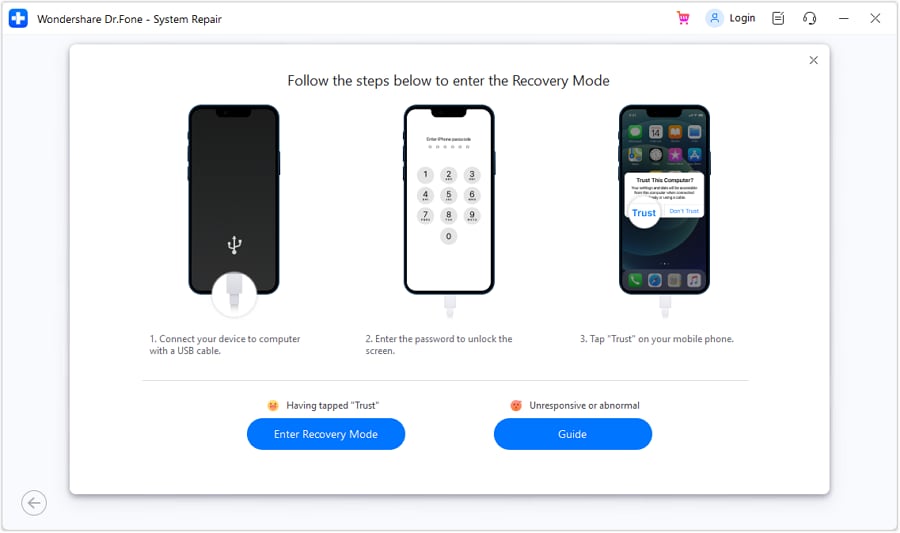
Step 4: Install iOS Firmware
Once you are done setting this, the platform automatically detects and shows the list of iOS firmware on the next screen. You must click the "Download" button adjacent to any iOS firmware you want to download. As it downloads, the platform verifies it and proceeds to installation. Click on "Repair Now" to install the iOS firmware successfully on your device.
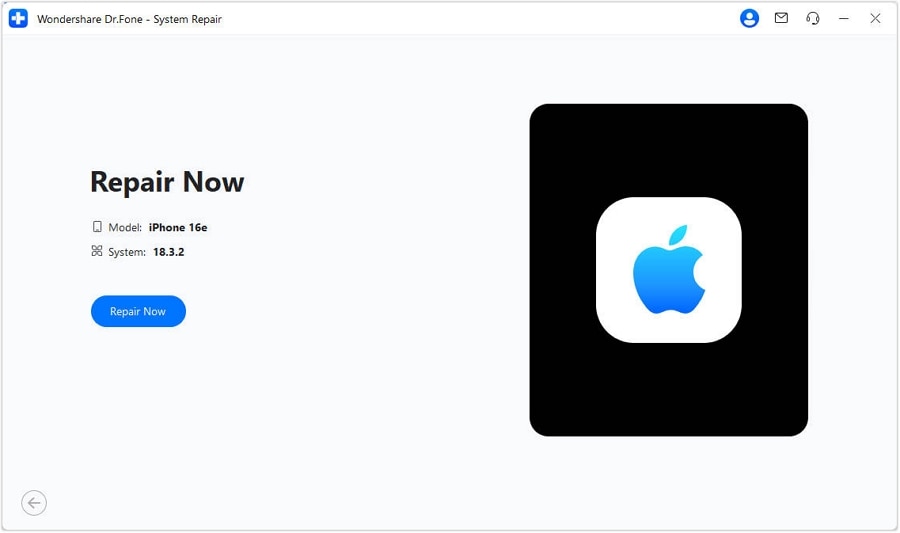
4,624,541 people have downloaded it
Part 4: FAQs about SSL on iPhone/iPad
1. How do I manually install SSL?
To install a specific SSL certificate, you have to download it on your iOS device. It will be downloaded as a Profile that you can access from your settings to install. After the installation, move to the "General" settings, from where you will have to access the "Certificate Trust Settings" from the "About" section. Turn on the respective certificate that you have installed on your iOS device.
2. How do I Check My iPhone SSL Certificate?
You can check the SSL certificate of a respective website you have opened on your Safari browser. Click on the "Share" button and find the option of "Show Certificate."
3. Should SSL be on or off on iPhone/iPad?
It should be turned on for your iOS device since it protects you from different threats involving viruses and malware.
4. How to Enable an SSL Certificate on iPhone/iPad?
If you have manually installed an SSL certificate on your iOS device, you have to access it from your "Settings." Proceed to the "General" section, followed by "About," where you will find the option of "Certificate Trust Settings." Enable the installed SSL certificate from there.
5. How can you clear the SSL State on your iPhone?
To clear an SSL State of any browser on your iPhone, you have to delete the browsing history and data associated with it. For example, for Safari, you have to access the option by going into the "Settings" of your iOS device.
Conclusion
This article has featured a comprehensive overview of the SSL Error iPhone and provided you with the right set of methods to help you get out of it. To ensure that your iOS device does not malfunction, you should use the provided solutions. Along with that, we have also provided you with Dr.Fone - System Repair (iOS) as the ultimate tool for resolving such errors.
4,624,541 people have downloaded it
iPhone Errors
- Errors 0 ... 100
- 1. iPhone Error 6
- 2. iPhone/iTunes Error 9
- 3. iPhone Error 10
- 4. iPhone/iTunes Error 21
- 5. iPhone Error 35
- 6. iTunes Error 40 on iPhone/iPad
- 7. iPhone Error 47
- 8. iPhone Error 69
- 9. iPhone Error 75
- 10. iPhone Error 78
- Errors 1xxx
- 1. iPhone Error 1009
- 2. iPhone Error 1015
- 3. iPhone/iTunes Error 1100
- 4. iPhone Error 1110
- 5. iPhone Error 1667
- Errors 2xxx
- Errors 3xxx
- 1. iTunes Error 3004
- 2. iTunes Error 3014
- 3. iTunes/iPhone Error 3194
- 4. iPhone Error 3503
- 5. iPhone/iTunes Error 3600
- Errors 4xxx
- Other iPhone Errors
- 1. iPhone Error 7005
- 2. iPhone/iTunes Error 9006
- 3. iPhone Error 0xe8000015
- 4. iPhone Cellular Update Failed Error
- 5. iPhone Activation Error
- 6. iPhone SSL Error
- Other iPhone Issues
- ● Manage/transfer/recover data
- ● Unlock screen/activate/FRP lock
- ● Fix most iOS and Android issues
- Repair Now Repair Now Repair Now















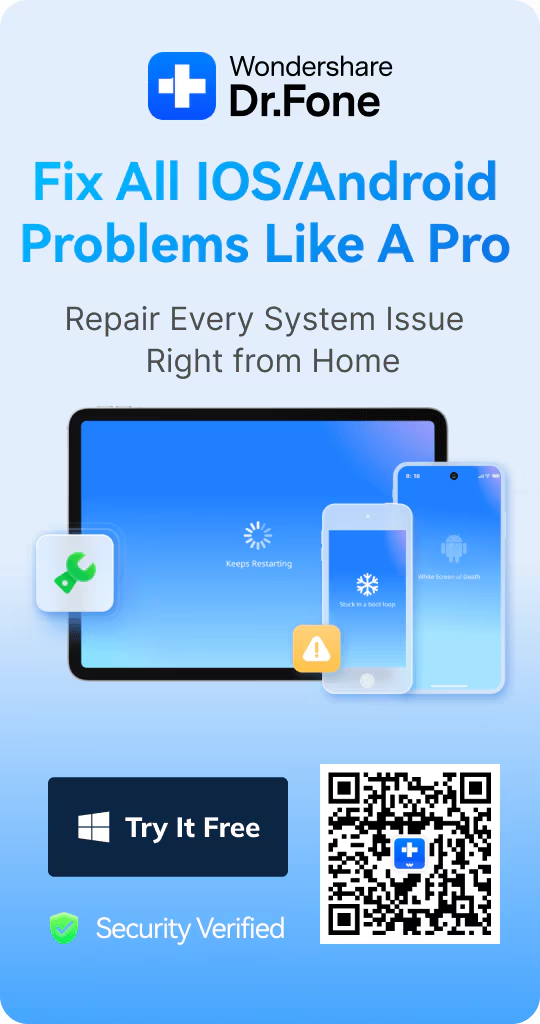
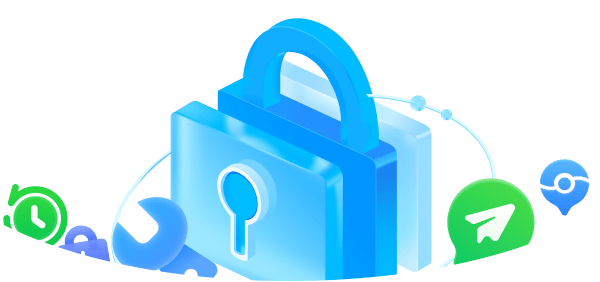
James Davis
staff Editor
Generally rated4.5(105participated)